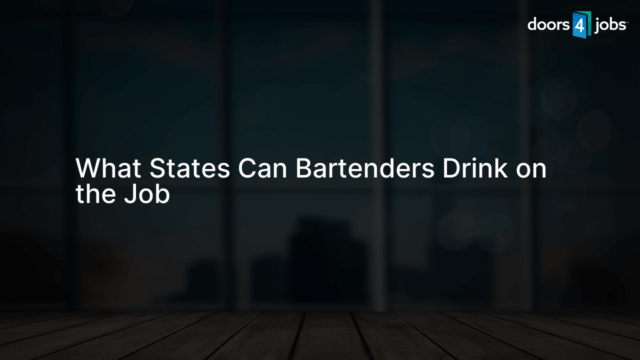Yes, you can get another job while on workers’ compensation, but it may impact your benefits. You must inform your workers’ comp insurance and employer about the new job, as they will adjust your workers’ comp payments to account for your new income. Always consult your state’s workers’ comp laws and seek legal advice if necessary.
Understanding Workers’ Compensation
Workers’ compensation is an insurance system designed to provide financial assistance to employees who become injured or ill on the job. The purpose of these benefits is to help employees cover medical expenses, lost wages, and other related costs while they recover from their work-related injuries.
Working Another Job While on Workers’ Comp
You can work another job while receiving workers’ compensation benefits, but there are certain conditions and requirements you must follow. These include:
1. Notifying Your Workers’ Comp Provider and Employer
It is crucial to inform your workers’ comp insurance and your employer about your new job. They need this information to adjust your workers’ compensation benefits accordingly, as your new income may impact the amount you receive.
2. Understanding Your State’s Laws
Every state has its own workers’ compensation laws, so it is essential to familiarize yourself with your state’s regulations before taking on a new job. These rules outline the effect your new employment may have on your benefits and any restrictions or guidelines you must follow.
3. Respecting Your Doctor’s Recovery Plan
While working another job, it is important to respect your doctor’s prescribed recovery plan, as returning to work prematurely may be harmful to your overall health and recovery. Ensure the new job does not violate any medical restrictions imposed by your treating physician.
Considerations and Potential Impacts
There are a few important considerations to keep in mind if you decide to work another job while receiving workers’ comp benefits:
1. Impact on Benefits
Working a second job may result in reduced workers’ comp benefits, as you may be deemed less disabled. However, if your income is not sufficient to offset the loss of benefits, your workers’ comp payments may remain unaffected.
2. Types of Work Allowed
Depending on your situation, the new job may need to be considered as “light duty,” meaning it does not exacerbate your injury or hinder your recovery process. Jobs that involve heavy physical work may not be suitable in such circumstances.
3. Importance of Legal Advice
It is always recommended to consult an attorney experienced in workers’ compensation law to better understand your rights and obligations involved in working another job while receiving benefits.
Finding Suitable Job Opportunities
While on workers’ compensation, it is crucial to search for job opportunities that align with your current physical limitations and any medical restrictions imposed by your treating physician. Possible options to consider include:
- Remote or telecommuting positions
- Part-time jobs with flexible hours that accommodate your recovery
- Consulting or freelance work within your professional field
- Jobs that require minimal physical exertion or labor
Managing Time and Recovery
One of the essential aspects to consider when taking on a new job while on workers’ comp is the balance between work, recovery, and personal life. To effectively manage all areas, consider:
- Creating a realistic timetable for completing work tasks, attending medical appointments, and taking breaks to rest
- Prioritizing your health and well-being by not pushing yourself beyond your limits
- Communicating with your employer about your medical restrictions and need for accommodations
- Keeping track of your progress and adapting your job search strategy as needed
Communication with Your Caseworker
While working another job during your workers’ compensation, regular communication with your caseworker is vital. By keeping them informed of your work status and changes to your financial or medical situation, you can ensure a smoother interaction and avoid potential complications with your benefits. Key steps you should take include:
- Providing accurate information about your new job, such as hours worked and earnings
- Updating your caseworker on any changes in your health or your injury’s progress
- Notifying your caseworker if you encounter any issues with your new job or if your employment status changes
- Submitting relevant documentation promptly, as required by your caseworker or workers’ comp program
Temporary vs. Permanent Employment
Before accepting a new job while on workers’ compensation, consider whether the position is temporary or permanent. Temporary employment may be a great solution if you plan to return to your previous employer once fully recovered, while permanent employment may be more suitable if your injury has led to lasting limitations that prevent you from resuming your former role. Keep the long-term impact of your choice in mind to ensure a smooth transition during your recovery process.
FAQs: Finding Another Job While on Workers’ Compensation
In this section, we answer some common questions about working another job while receiving workers’ compensation benefits. The responses provided are concise and offer NLP-style answers that are semantically and directly related to the topics discussed in the blog post.
Can I work a full-time job while receiving workers’ compensation?
Yes, you can work a full-time job while on workers’ compensation, but you must notify your workers’ comp provider and employer. However, your benefits may be adjusted based on your earnings, and the job should not hinder your recovery or violate medical restrictions.
What happens if my new job pays less than my workers’ comp benefits?
If your new job pays less than your workers’ comp benefits, you may still be entitled to partial benefits. This is determined by your state’s workers’ comp laws and your reduced earning capacity due to your injury. Consult an attorney for specific guidance.
Can I be self-employed while on workers’ compensation?
Yes, you can be self-employed while receiving workers’ comp benefits, but you must adhere to medical restrictions and report any income earned during this period. Your workers’ comp benefits may be adjusted based on your self-employment income and the level of disability.
Does my employer have to keep my job open while I’m on workers’ comp?
Employers are not always required to keep your position open while you are on workers’ comp. This varies by state and the employer’s policies. However, many employers will try to accommodate injured employees when possible, such as offering modified or light-duty tasks.
Do I have to take a lower-paying job while on workers’ compensation?
You are not required to take a lower-paying job while on workers’ compensation. However, if you choose to work a new job, your workers’ comp benefits may be affected. Your ongoing financial situation and recovery progress should be considered when deciding whether to work a lower-paying job.











